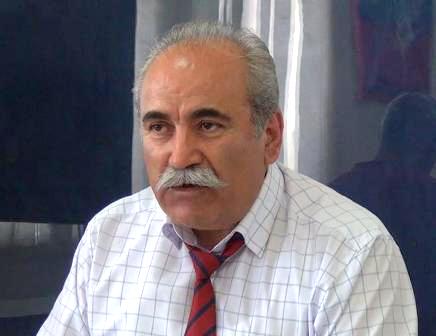 Former US Co-Chairs of the OSCE Minsk Group continue to surprise with their statements about Artsakh and Armenia.
Former US Co-Chairs of the OSCE Minsk Group continue to surprise with their statements about Artsakh and Armenia.
First, earlier this month, an article by former US Co-Chair of the OSCE Minsk Group Richard Hoagland was published, in which the latter actually accused the Minsk Group of 30 years of inefficient work, touching upon Madrid Principles and Lavrov’s plan tried to provoke certain anti-Russian sentiments among the society, hinted that the solution to the Karabakh problem was the resumption of the war. After the publication of Hoagland’s article the visit of former US Co-Chair of the OSCE Minsk Group Matthew Bryza to Azerbaijan took place, during which the latter, taking a unilateral position, not only made anti-Armenian statements, particularly in connection with the city of Aghdam, but also stressed what kind of “positive and humane” steps Azerbaijan takes after the last Karabakh war.
This kind of behavior and statements of the former US Co-Chairs does not reflect the OSCE guidelines, moreover, it is a blow towards principles adopted by the organization as a whole. It is noteworthy that that the former co-chairs set out to tarnish the reputation of the organization. There is no doubt that Hoagland’s article was mainly aimed at Russia, in particular, it was aimed at spreading anti-Russian sentiments in the region, at the same time, it was a message that the United States intends to intensify mediation efforts in the Karabakh conflict. However, it should be noted that Hoagland, in fact, justifies the settlement of the Karabakh conflict through hostilities, emphasizing the ineffectiveness of the negotiations under the auspices of the OSCE Minsk Group (which is a Turkish-Azerbaijani position), and Bryza presents Azerbaijan’s anti-Armenian policy from a “positive” point of view, thus encouraging the latter’s aggressive steps.
It should be noted that even the fact that Hoagland and Bryza are retired diplomats, however, their statements raises questions. Here it is necessary to understand whether the former co-chairs act in agreement with the US state institutions or make such statements on their own initiative. This question arises when we take into consideration the fact that relevant US authorities do not respond to the behavior of Hoagland and Bryza. The silence of the OSCE MG is also strange. It is even inexplicable in the context of the statement they have recently issued, in which they call on the parties to resume the dialogue under their auspices as soon as possible…
In order to clarify this uncertainty to some extent, it is necessary to seek the official response of both the relevant US institutions and the other OSCE MG Co-Chair countries.
Arpine Melikyan







